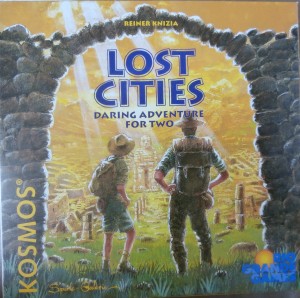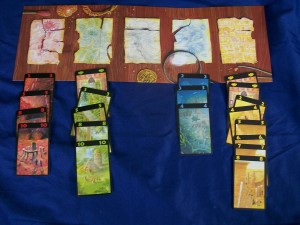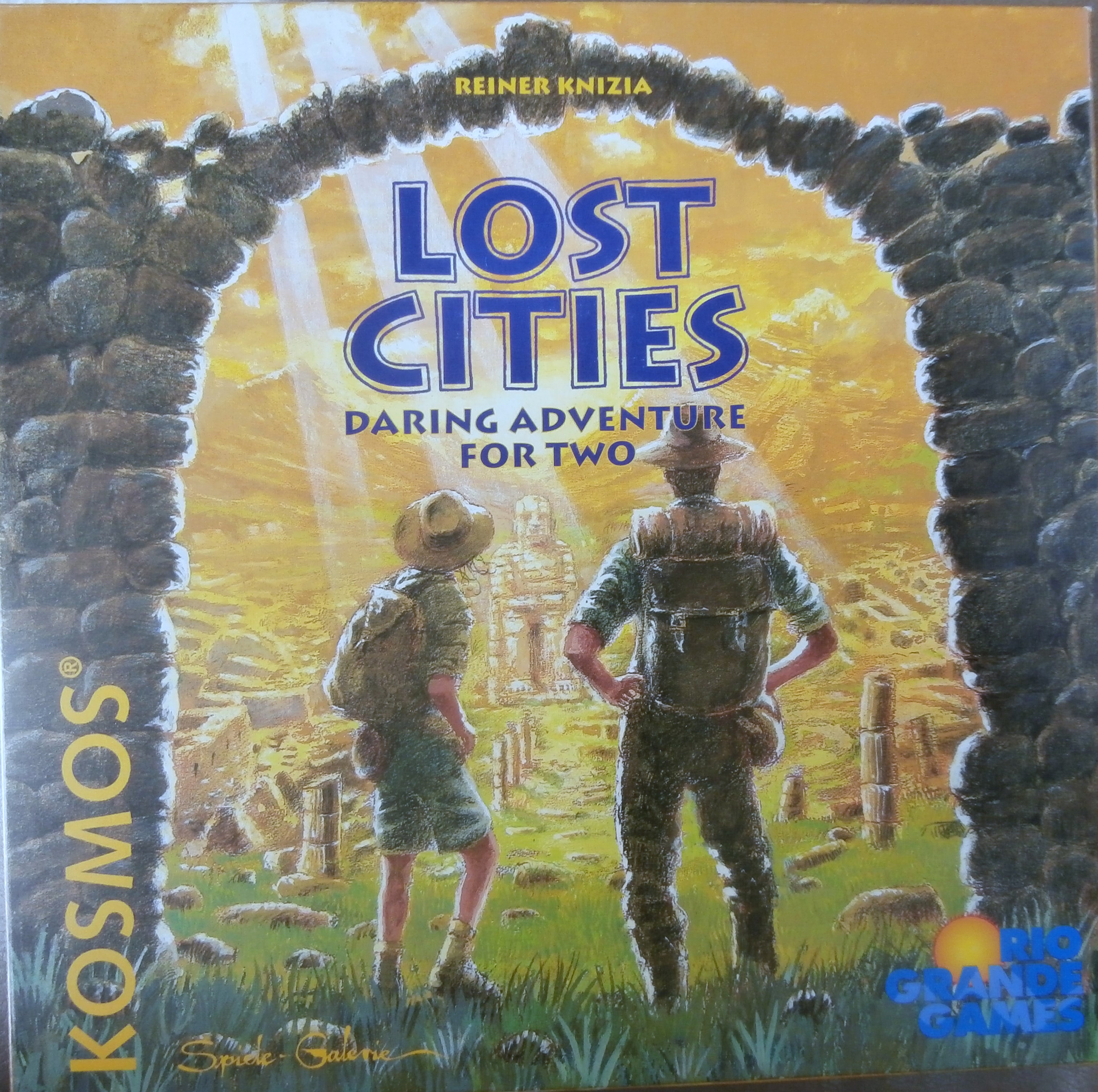 Lost cities and their forgotten treasures are out there to be discovered by those who are daring enough to venture into unknown lands. Careful preparation and planning must be made to become named the most successful explorer, though. In the thrilling two player card game of Lost Cities, you compete not only by completing successful expeditions, but by learning how to best balance risk with reward for expeditions embarked on!
Lost cities and their forgotten treasures are out there to be discovered by those who are daring enough to venture into unknown lands. Careful preparation and planning must be made to become named the most successful explorer, though. In the thrilling two player card game of Lost Cities, you compete not only by completing successful expeditions, but by learning how to best balance risk with reward for expeditions embarked on!
The game is easy to learn and quick to play. It consists of 60 cards and a board. The board is not essential, however, as it is only used to organize cards played to the five destinations of the game. Will travelers choose to explore the Deep Realms of Neptune, Mountains, or Jungle? Maybe their resources would better support the investigating of the Volcanic or Desert regions instead.
The cards comprise of 12 cards for each of the game’s five destinations. Nine of these are expedition cards and are numbered 2 through 10. The other three are investment cards. How an explorer strategically plays these cards during the game will determine who gains the most points and wins the game at the end of a predetermined number of rounds; usually three.
At the start of the game, each player is dealt 8 cards, with the remaining cards placed face down to form a draw pile. Players look at their hands and carefully decide upon their strategies. Will they focus their attention on one full mission or will they embark on as many as they have in their hand? How much investment should be risked for the gaining of larger rewards at the end?
These are only some of the questions players will ask themselves. With limited resources, an explorer needs to be cautious not to spread himself too thin and fail at missions started upon. Or if he concentrates on merely one to guarantee better success, he misses rich opportunities of others, and is left in the dust by a more adventurous explorer. This balance of risk, to playing it safe, is the key for winning the game.
Each turn of the game involves the playing of a card, and then a drawing of one. A player chooses to play a card in the following ways:
*He could play an investment card for an expedition by placing it in front of the corresponding space of the board (investment cards must be played before expeditions start)
*He could add to his initial investment cards for expeditions by playing another on top (for a total of 3)
*He could start an expedition (without investment) by playing a card in front of the space of the board that corresponds to the destination.
*He could expand on an expedition by playing a card of the same destination on top of a previously started expedition or investment. All cards must be in ascending order, but not necessarily consecutively (ex: investment,2,5,6,8,9)
*He could merely discard a card
After an explorer plays a card, he then draws a card. The game ends, and scoring begins, immediately once the last card from the draw pile is picked. (below is an example of card play for one player/side of the board)

Scoring is based on the progresses of each expedition embarked on by a player. All expeditions initiated cost 20 points. The numbered cards placed in front of the board’s destinations are added together, and the cost of 20 is subtracted from the played cards total. It could be negative or positive. If investments were made, this total is then doubled, tripled, or quadrupled (either positively or negatively) according to the amount of investment made (2,3,4x for 1,2,3 investment cards).
One can see the possible disastrous result if a player invests in an expedition, and then fails to positively complete that mission! The flipside, however, rewards greatly.
This wonderful unique need for balancing adventure with safety makes Lost Cities an exciting and thrilling game to play. Treasures are gained according to which expeditions to take and which to leave behind. The choice is always challenging, and explorers are always torn! May the best one at choosing wisely, win!


Pingback: Intuition - Page 83
Pingback: A Journey - Page 1204